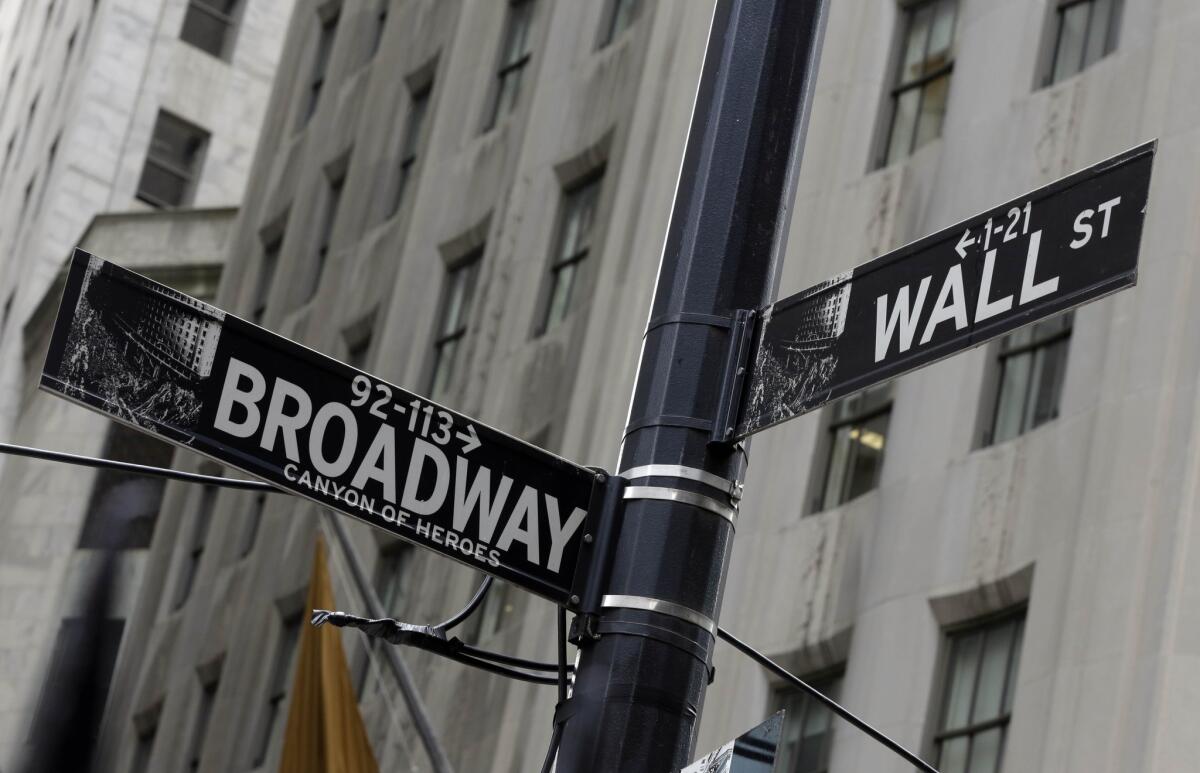Stocks close sharply lower amid a range of worries

NEW YORK — Stocks fell sharply Monday as investors grappled with a range of worries and searched in vain for a reason to buy shares.
Last week’s decision by Federal Reserve policymakers to hold off on raising a key short-term interest rate was taken a sign that the Fed lacked confidence that the U.S. recovery would be able to withstand volatile markets and slowing economic growth overseas, said Randy Frederick, Schwab’s managing director of trading and derivatives.
“We were looking for an endorsement, and we didn’t get that,” Frederick said. “What we got was more uncertainty, and that’s what markets hate most.”
Just as markets were digesting last week’s Fed’s decision, the International Monetary Fund’s managing director, Christine Lagarde, was quoted in a French newspaper Monday dialing down expectations for global growth, sending another bearish signal.
A global growth rate of 3.3 % in gross domestic product, or total economic output, is “no longer realistic” this year, she told Les Echos in Paris. “A forecast of 3.8% for next year isn’t, either. We still remain above the 3% threshold.”
In the U.S., the Dow Jones industrial average fell 312.78 points, or nearly 2%, to 16,000.89. The broader Standard & Poor’s 500 Index dropped more sharply, 2.5%, or 49.57, to 1,888.77. The gloomy result matched down days across continental Europe and on Japanese markets.
After a rough August and jittery September, the Dow is down about 12.5% from its peak on May 19 and more than 10% for the year. The S&P is off 11.7% from its May 21 peak and more than 8% for the year. Both are in correction territory, which is generally defined as a drop of 10% or more from a peak.
Analysts’ hopes at the start of the year for mid-single-digit returns for this year may have gone by the boards at this point — and even breaking even for the year will be a reach.
“Where is the upside lift going to come from?” asked John Lonski, chief capital markets economist for Moody’s Analytics. “I can’t see it.”
U.S. tech stocks have been particularly hard hit. The Nasdaq composite index dropped more than 3% Monday, or 142.53 points, to 4,543.97. The tech-heavy index is down more than 13% from its July 20 peak and more than 4% for the year.
Analysts said the sharper fall is a function of the tech sector’s typically higher volatility, rising and falling more sharply than the broader indexes. Biotechnology, which is also heavily represented in the Nasdaq index, has been hammered lately.
For instance, the iShares Nasdaq Biotechnology exchange traded fund offered by BlackRock Inc., which owns a basket of stocks in that sector, had been up more than 30% for the year by July 21 and now is down more than 4%.
The market pessimism comes in the face of a string of reasonably good news in the U.S. economy. On Monday, the Commerce Department reported that consumer spending increased 0.4% in August from the previous month, a solid pace and better than economists had forecast. The pace of growth matched that of July, which was revised up from an initial estimate of 0.3%.
Chris Rupkey, chief financial economist at Union Bank in New York, called the consumer spending number “rock solid” and said it should help convince Fed policymakers that the economy is strong enough to raise the key interest rate for the first time in nearly a decade.
The consumer figures came on the heels of another Commerce report last week that found the U.S. economy performed better in the second quarter than earlier estimated, growing at a strong 3.9% annual rate.
But analysts said the GDP figure was old news and that there was no shortage of more recent bearish indicators, including signs of a slowdown in the housing sector, one of the U.S. economy’s bright spots, and continuing bad news out of China.
Lonski noted that Chinese officials reported Monday that the country’s industrial sales grew only 1.3% from January through August, compared with 8.3% during the same period last year.
Lonski said the IMF’s Lagarde was “absolutely right” to lower global growth estimates, particularly given steep declines in industrial metals and oil prices, which portend lower global growth going forward.
Despite the gloom, few analysts forecast stocks tipping into a bear market, a decline of 20% from their peaks. Russ Koesterich, global chief investment strategist for BlackRock, wrote recently that despite recent spikes in market volatility and fears of a new recession, “the U.S. economy is sound.”
He predicted that stocks would end the year above current levels but that investors would be wise to temper expectations for their investments.
“While U.S. stocks are likely to outperform U.S. bonds,” he said, “neither may provide particularly exciting returns over the next few years.”
More to Read
Inside the business of entertainment
The Wide Shot brings you news, analysis and insights on everything from streaming wars to production — and what it all means for the future.
You may occasionally receive promotional content from the Los Angeles Times.











